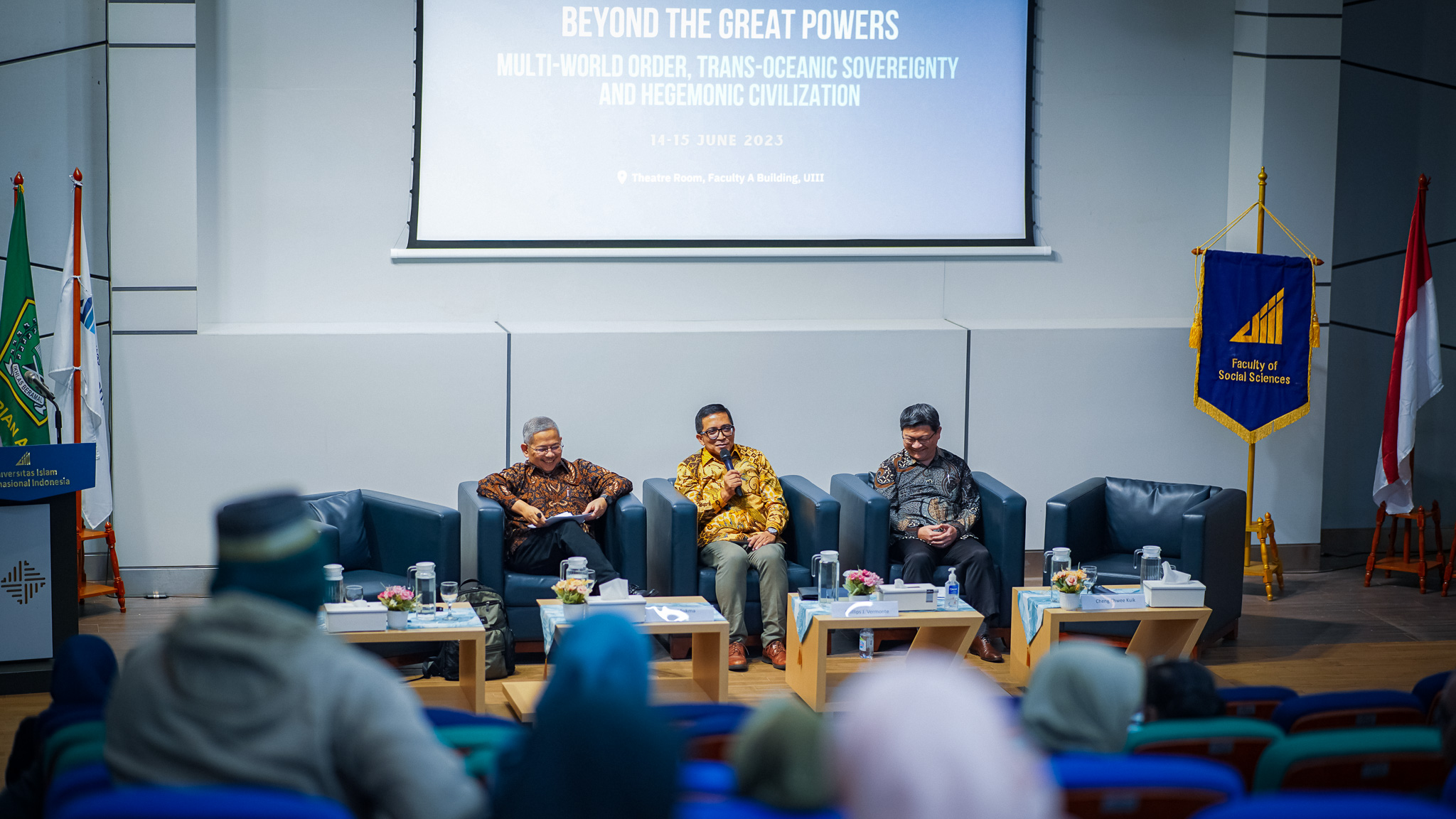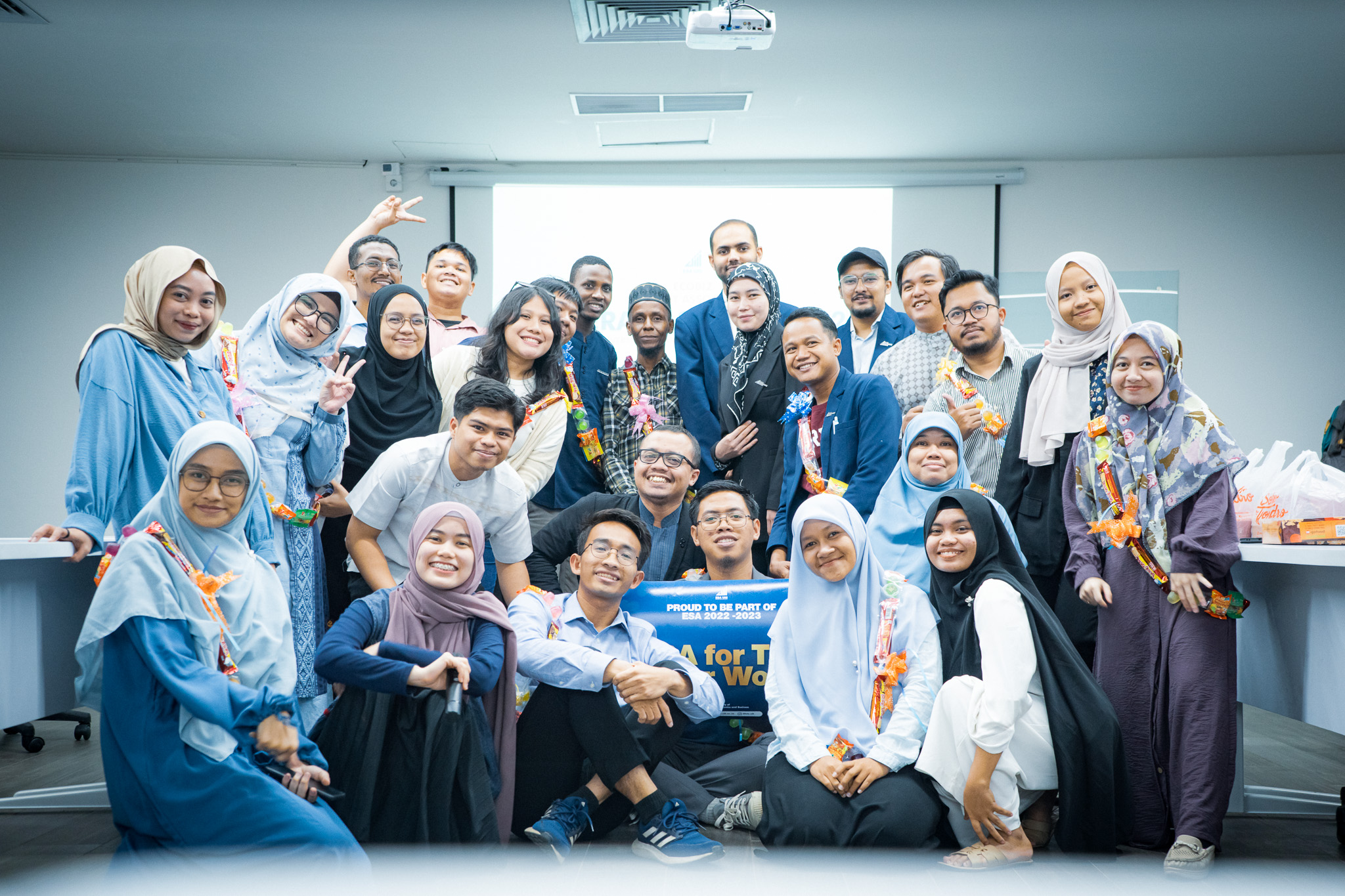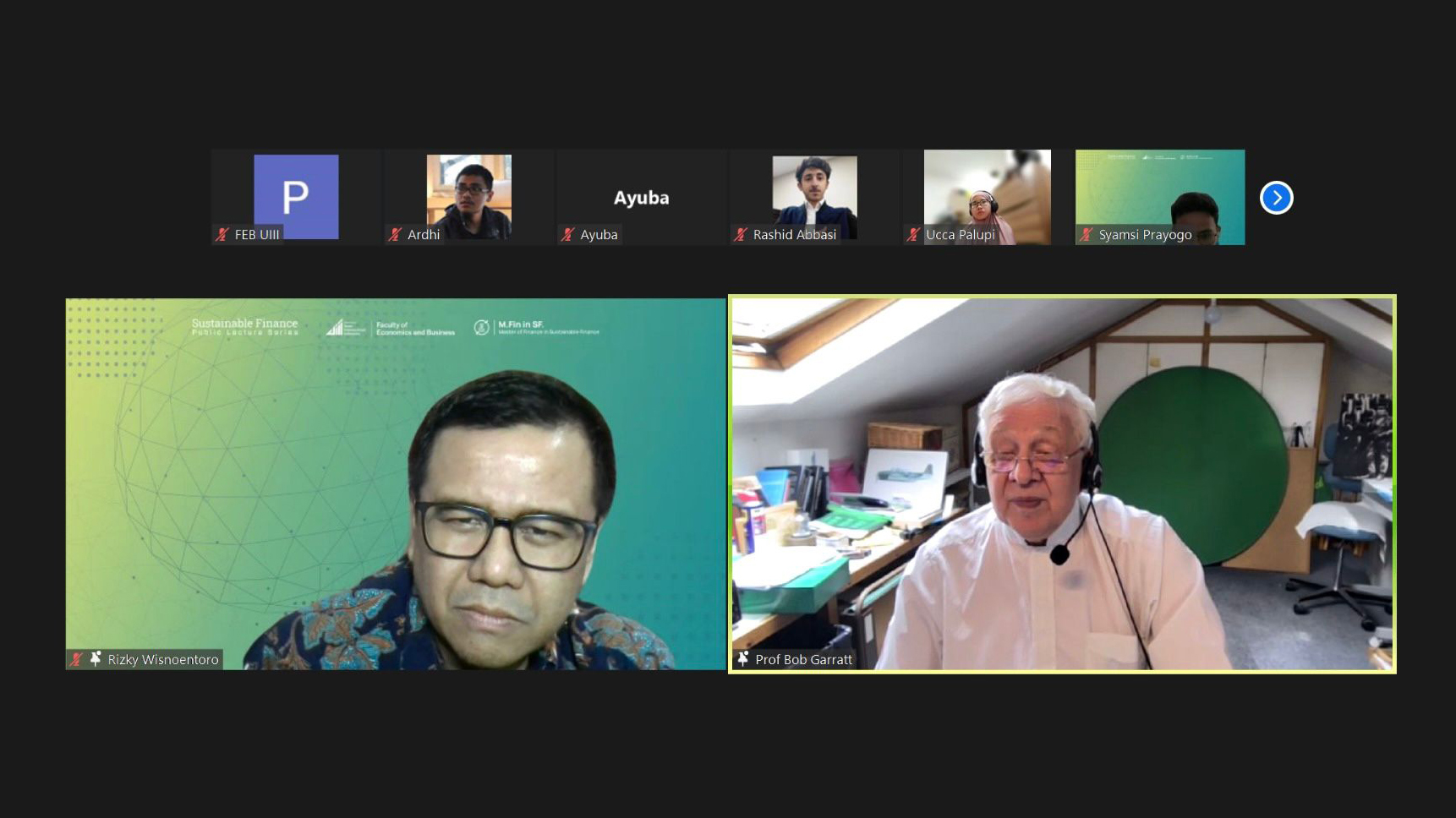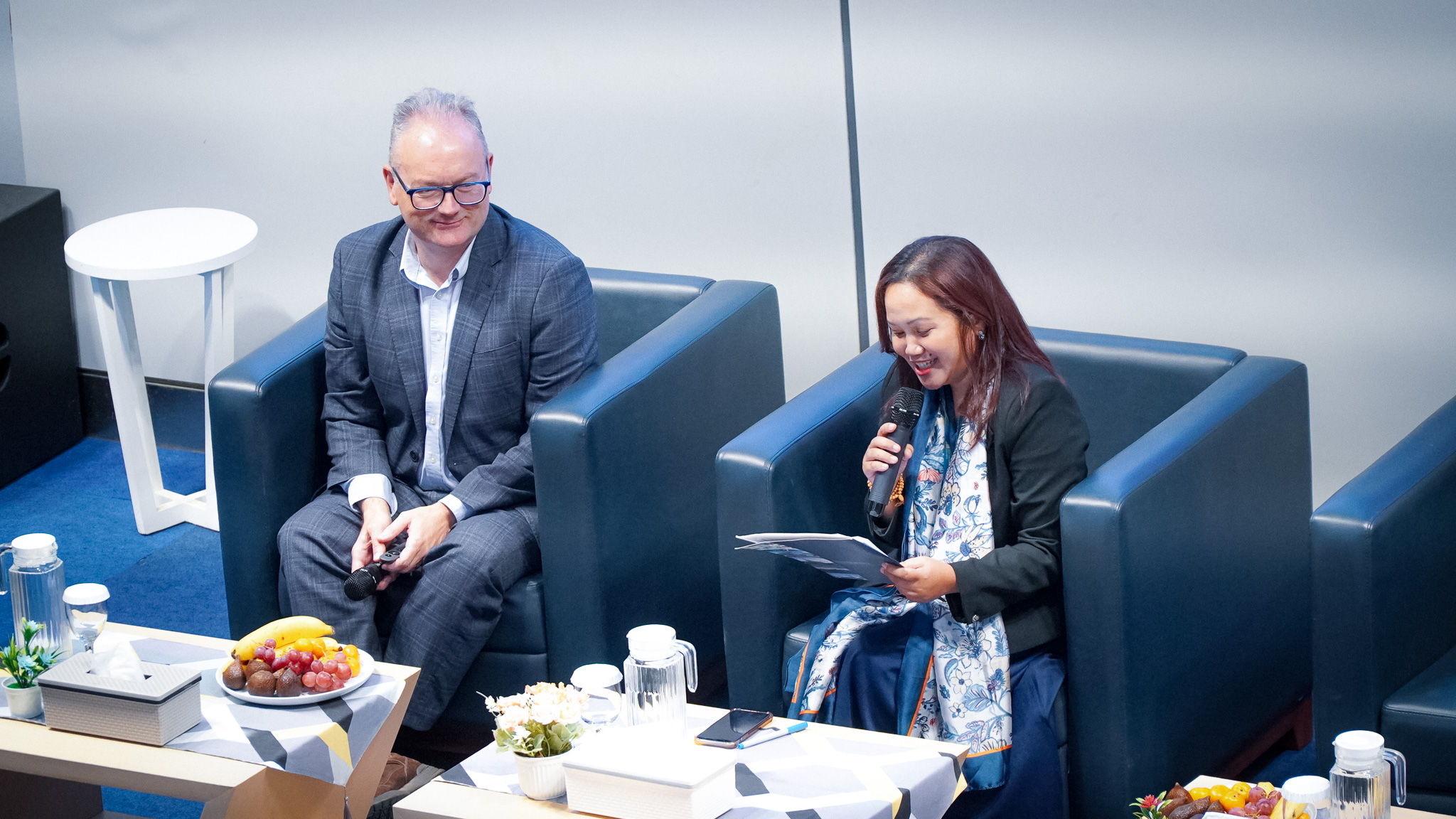Key Takeaways from the UIII’s Faculty of Social Sciences 2nd Annual Symposium
June 19, 2023Contributor: Magello Fenis | Editor: Supriyono

The 2nd Annual Conference organized by the Faculty of Social Sciences at Universitas Islam Internasional Indonesia (UIII) was successfully conducted from June 14th to 15th, 2023. The conference centered around the theme "Beyond the Great Powers: Multi-world Order, Trans-oceanic Sovereignty, and Hegemonic Civilization."
One of the aims of the annual conference is to provide an opportunity for academics to explore alternative perspectives concerning the definitions, forms, and roles of the international system and world politics. This is due to the prevailing notion that these concepts have primarily relied on Western experiences, and the conference aims to offer a platform for scholars to present diverse viewpoints.
This year's conference showcased four distinguished keynote speakers: Dr. Ayse Zarakol, a professor of International Relations from the University of Cambridge, UK; Dr. Farish A. Noor, a professor of History from Friedrich-Alexander University, Germany; Rizal Sukma, a senior fellow of CSIS and former Indonesian Ambassador to the UK; and Dr. Kuik Cheng-Chwee, a professor of International Relations at the National University of Malaysia.
In Keynote Panel 1, which centered around the theme "Before Westphalia: Multi-world Orders and Power Relations in the East and West," Dr. Zarakol highlighted the present-day relevance of international relations as an academic discipline. She noted that scholars frequently concentrate on urgent contemporary matters, particularly within the realm of U.S. influence, such as power transitions, the war in Ukraine, and Russia's motivations. Nevertheless, she stressed the importance of integrating historical perspectives into discussions surrounding these significant current issues.
In this regard, Dr. Zarakol's published book presents a fresh perspective on the history of international relations that does not revolve around European political actors. “In order to write a connected history of Asia, the Mongol Empire serves as an excellent starting point, as it played a similar role to the Roman Empire in Europe," she explained.
Meanwhile, Dr. Farish A. Noor, the second speaker in Keynote Panel 1, emphasized the necessity of addressing the gap that exists in the field of international relations, which has long been plagued by presentism.
According to Dr. Noor, “Living in a post-colonial world, we are somewhat burdened by the academic and intellectual baggage that has been predominantly exported to non-Western world, presenting international relations as a discipline that supposedly encompasses the entirety of human political relations.”
Furthermore, Dr. Noor emphasized that individuals from Southeast Asia, being part of the non-Western world, need to confront the realities of globalization in our contemporary late post-industrial capitalist era. It is of utmost importance for them to comprehend the implications of their Southeast Asian identity, even on a practical level, across various aspects of life, including employment and their future prospects.
In the next Keynote Panel, which focused on the theme of "Beyond the Great Powers: Southeast Asia and the Ideas of Maritime Fulcrum and Hedging," Dr. Rizal Sukma initiated a discussion about the potential use of the global maritime fulcrum strategy in addressing concerns related to China, as well as the evolution of such concepts over time.
“The concept of the global maritime fulcrum essentially represents the need to reconsider Indonesia's strategic position within the context of two significant shifts in world politics, particularly in the Indo-Pacific region. Firstly, there is a power shift occurring in this region from the West to the East. Secondly, there is a transition from one center of gravity to another, as power competition involves not only the United States and China but also other major powers, despite the United States and China being the most prominent players,” Dr. Sukma explained.
In addressing a related subject, Dr. Kuik Cheng-Chwee emphasized that the multi-layered partnerships within ASEAN serve as the primary policy of trust for all of us in Southeast Asia, as well as for our partners within Asia. The rationale behind this lies in the "what" and "why" aspects of hedging.
In the Q&A session, Dr. Cheng-Chwee highlighted that ASEAN serves as the core of this multi-layered partnership, emphasizing that it is not about reinventing the wheel. "Given the existence of multiple risks, it is essential to employ multiple tools to address them. The complex and dynamic nature of the real world necessitates a multi-layered partnership that aligns with the current challenging and messy circumstances," added Dr. Cheng-Chwee.
In addition to the two Keynote Panels, there is also a special panel session titled “Globalized Security and Peace Building in the Global South” with Prof. Abu Bakarr Bah as the convenor.
Several students and scholars have also presented their papers in six designated panel discussions, covering various topics such as hegemonic civilization and theories, racial diplomacy, imperialism and epistemology, non-state actors and international political economy, women, gender and geo-politics, strategic rivalry among the global south, diplomacy and foreign policy of non-great powers and power relations in maritime Southeast Asian and Indian Ocean.
- Call for Papers 2025: FEB UIII Invites Researchers to Explore Muslim World Economy & Sustainability in OIC Countries
- Prof. Dr. Nasaruddin Umar: A Distinguished Profile in Religious Leadership
- Is Indonesia’s Middle Class Collapsing?
- Pedaling to Work, Dr. Lukman’s Message on ‘World Sustainable Transport Day’
- Welcoming the Pilgrim of Hope: Indonesian Muslim Leaders Embrace Pope Francis
- Sheikh Muhammad adh-Dhuwaini: A Recognized Authority in Sharia and Law
- Qurban and Grassroots Innovations Across Indonesia
- Indonesia's Green Qurban Movement
- UIII Productivity Ratio 2023
- Unsung Heroes in Global Trade: Celebrating International Customs Day 2024


